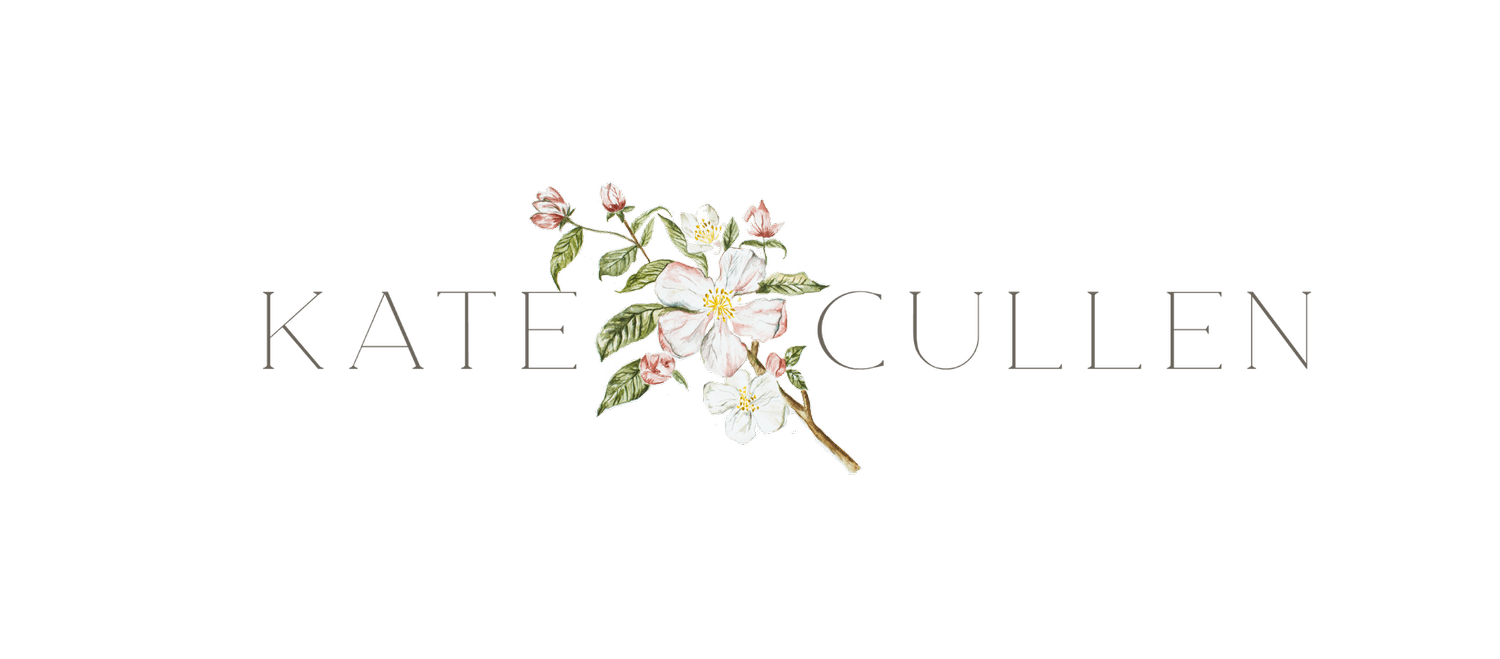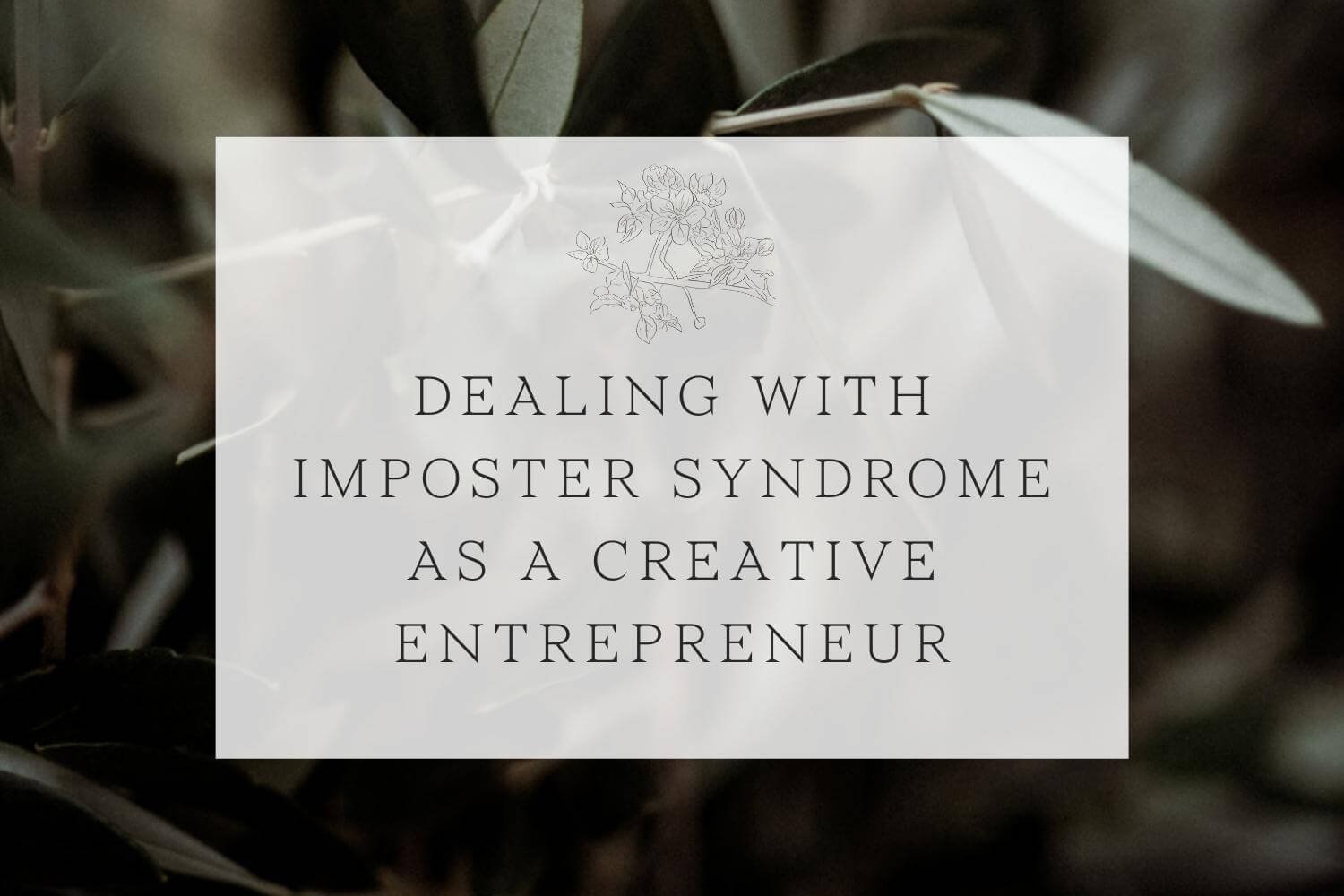Dealing with imposter syndrome as a creative entrepreneur
If you’ve been in business for any length of time (or even if you are yet to launch!) then you are very likely to have suffered from imposter syndrome. In this blog I give some helpful tips on how to deal with it when it rears its ugly head, as well as how to build confidence in yourself and your creative business generally.
What is imposter syndrome?
If you are used to accomplishing things and have often been called a high achiever, then you are even more likely to have experienced feeling like a fraud, or some sort of doubt in your abilities or skills, that you might be ‘found out’ any day and people might see through you and find you a fraud.
You may have questioned why people look at you with admiration, especially people that have no vested interest in doing so (not like family members or friends who we might expect to support us and tell us positive things about ourselves).
If you are a woman it’s even more likely that you have experienced to some lesser or greater degree (even the term ‘imposter phenomenon’ was coined in a study in the ‘70s on high-achieving women).
Common examples might be setting yourself goals that are exceedingly hard to obtain which then make you feel even worse about yourself, or perhaps you think that you can make up for any imagined inadequacy by working crazy hours. Perfectionism is anther manifestation of this feeling – you might obsess over the failings of a project rather than focussing on the positives. You may feel unable to begin simply because you never feel you have learned enough that you feel you have the authority to call yourself by a title of ‘artist’ or ‘photographer’ or ‘florist’ and so on. You may avoid asking for help in case others see it as a weakness or that you aren’t qualified in your role.
What happens if you experience imposter syndrome?
Quite simply it can paralyse you into not taking that next step in our business, the social anxiety of being ‘out there’ and subject to criticism or failure can be so crippling as to make you withdraw so that you don’t have to put yourself on the line.
You may overcompensate, undertaking ridiculous amounts of extra work or preparation so you can never be ‘caught out’, even though you really, truly are brilliant at what you do. If you do receive criticism (even well-intended and minor) you may catastrophise and feel like giving up altogether.
The reasons we experience to this to varying degrees can usually be attributed to our early experiences of success or failures and how both we and those around us dealt with them from school age all the way through to some of our first jobs and career. The amount of support we received then is often critical to the way we perceive ourselves now and we take that with us when we embark on our own businesses.
As an entrepreneur the focus is entirely on us and our output, so it’s natural to feel things more keenly than if we were working for someone else or part of a large corporation where collective responsibility is part of the work environment.
How to deal with feeling like a fraud
Learning to put things in perspective is really key to overcoming this horrible feeling. Here are a few of my top tips for overcoming it:
1. Surround yourself with good people.
Finding your tribe in your niche can be so enormously helpful, talking about these feelings openly can help you see that we nearly all feel this way at one time or another. You’re not alone, and the feelings do pass.
2. Make time to always improve and consolidate your knowledge and skills.
Those that accept they don’t know everything and make time to take courses, workshops or tuition from others always do better. It’s important to acknowledge that no creative person is ever ‘finished’, there is always more to learn, more to experience, more to enjoy and this makes us better and better.
3. Stop comparing yourselves to others.
It’s good to have heroes, those you admire, but all too often they are people who have been doing it a lot longer than us. It really helps to know we are all at different points on our journey. If you can, ask them to mentor, coach or support you to take those next steps in your business. You’ll often see that they, like you, were and maybe are still full of the same doubts and insecurities.
4. Learn to assess your own work critically but fairly.
It’s good to identify areas for improvement, but also what is really great about something you have created. eg sometimes I love the feeling I have evoked in a photograph I have taken, but accept that technically next time I cold do it even better (and perhaps take a course if I can’t learn it for myself easily). Finding the good is just as important (if not more so) as finding the faults in a creative business. Many people at the top of their game will accept a piece of work isn’t perfect technically, but because it connects emotionally it is some way more successful. It’s important to acknowledge that as an artist not everyone will love your work. And that is ok! It’s better to be adored by a few than for everyone to be indifferent.
5. Keep away from too much negativity.
If constantly reading emails, text messages or social media comments feeds into this imposter syndrome, then make sure you schedule time off from it all. Ensure you have time away from others’ opinions regularly. It’s much easier to assess things in the cold light of day than it is reading a mean-spirited Instagram comment at 2am scrolling on your phone. Remember negativity often comes from others’ jealousy and is often not a reflection on your skills or work. Do things that help you keep a restful mind and spirit. Take that walk in the sunshine, do that yoga class, read that trashy novel. REST!
I hope this helps you to see that we all experience those same negative emotions now and again. If you feel them at all it’s because you care about what you do. And you know what, this makes you more likely to success in the long run! Passion for what you do can’t be replicated. It doesn’t mater whether you’ve got qualifications or your self-taught, if you create, you’re a creative. You deserve to be successful.

